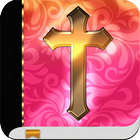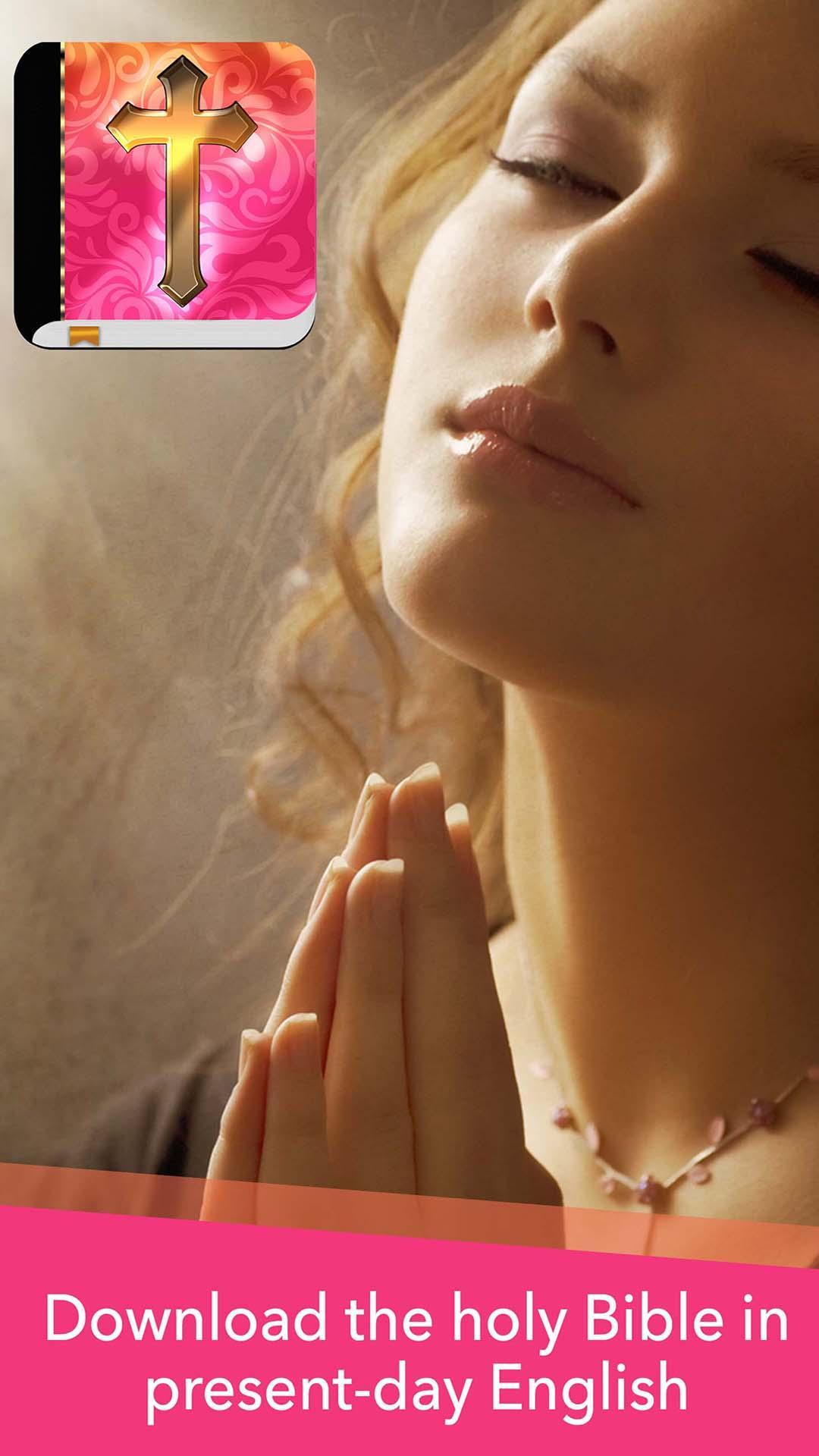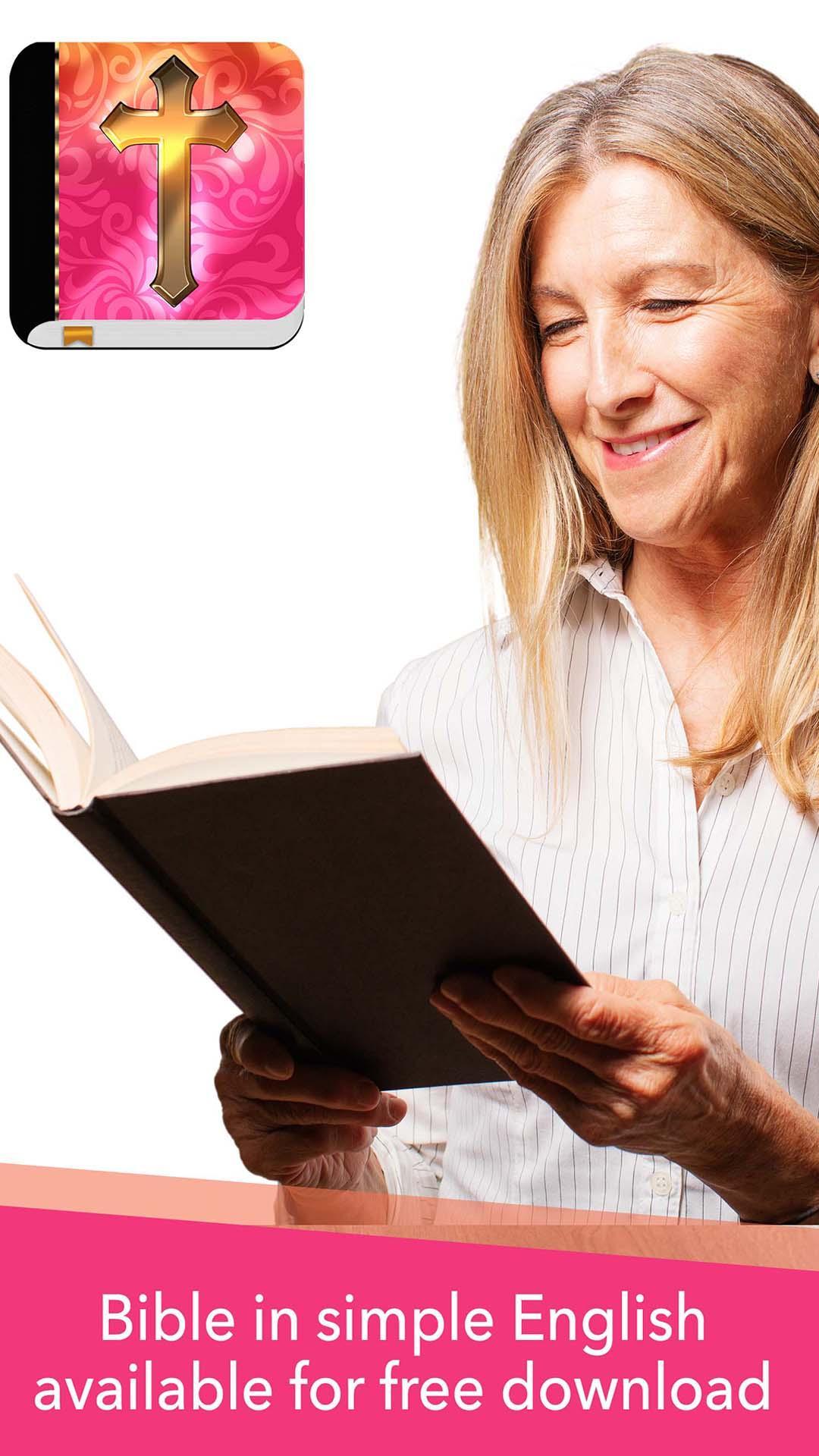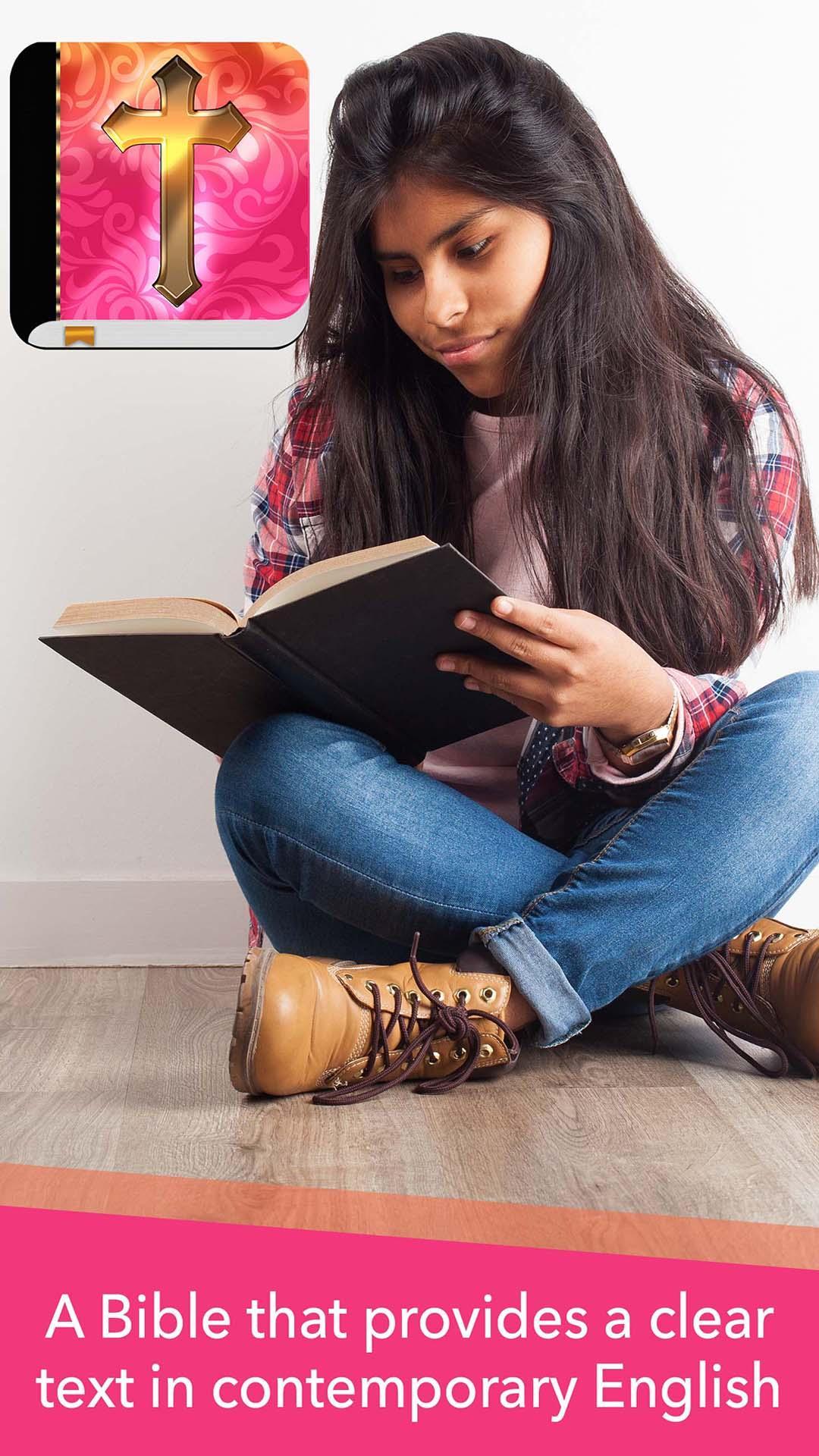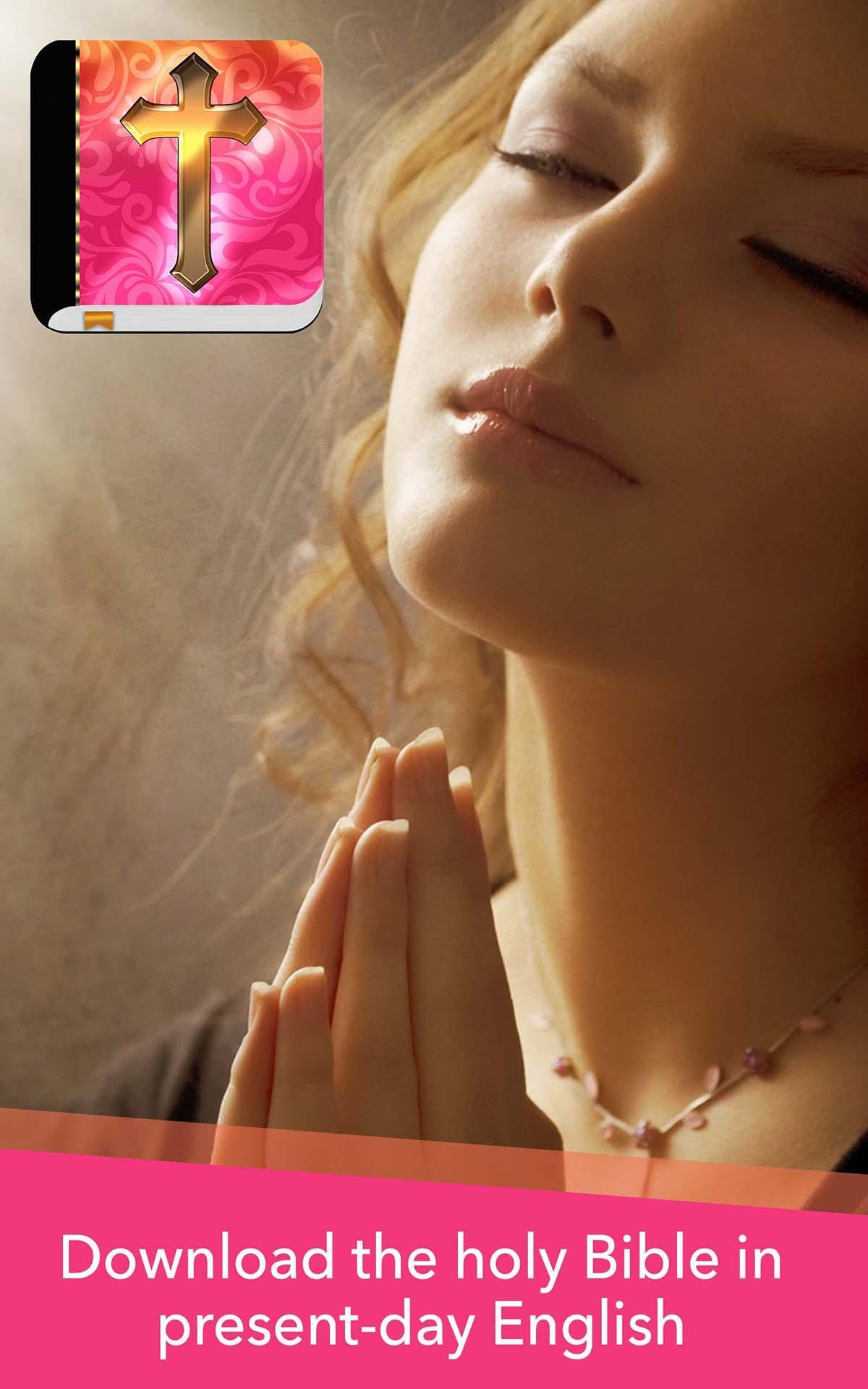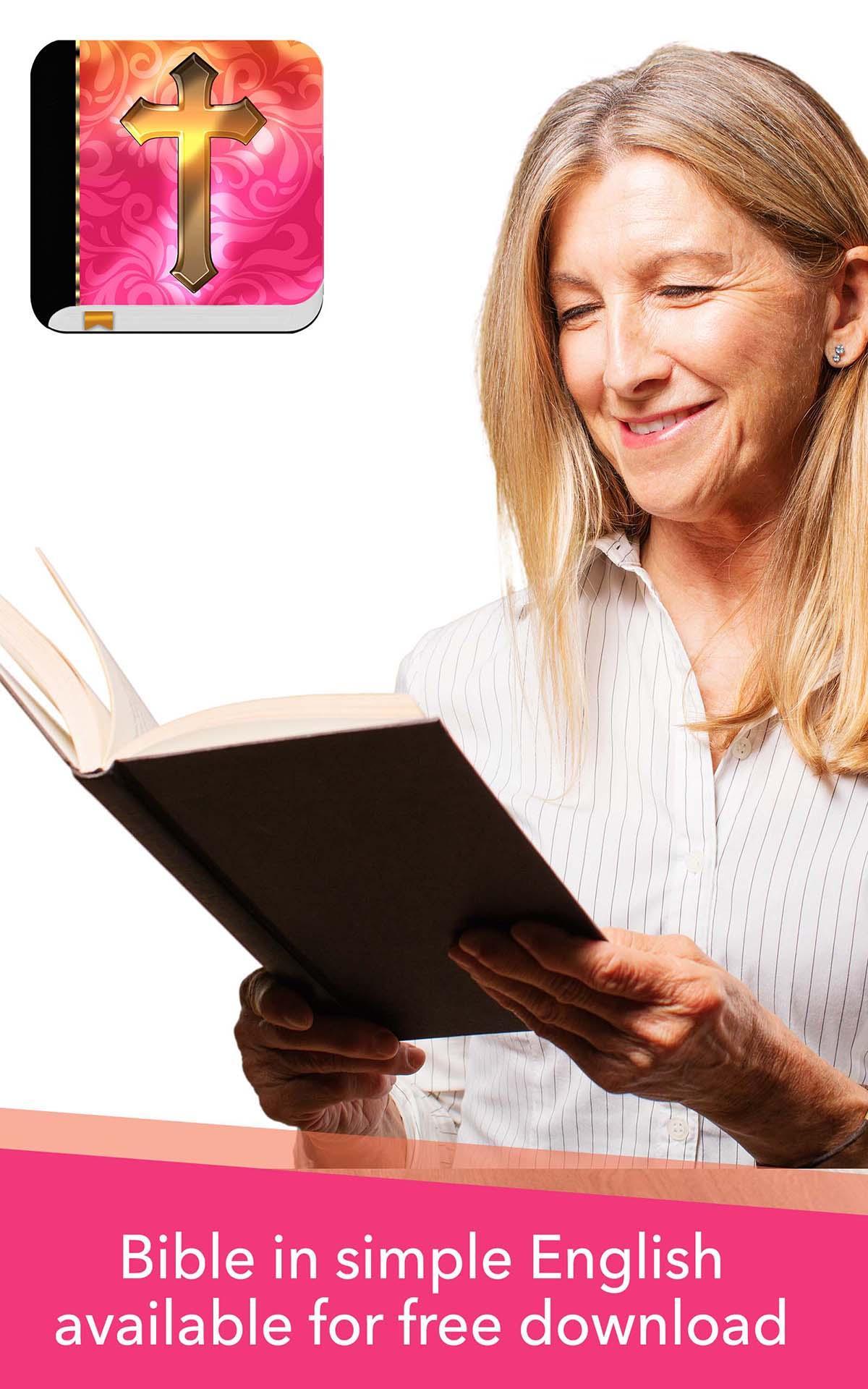Easy to read Bible: making it easier for you to read and understand the Bible.
Easy to read Bible free, totally offline with audio.
Welcome to the app Bible easy to understand, the best companion in your Bible study!
Enjoy the eternal Word of God in the language of English-speaking people today.
Once you have downloaded the app, you can read the Bible offline, without Internet connection!
At the same time, you will be able to listen to the Bible anytime, anywhere!
Inside this app you will find:
- Bible in Basic English version of the Bible
- Free downloading
- Audio-Bible to listen to the Holy word
- Possibility of bookmarking or highlighting verses
- Save any verse to read it again and again
- Memorize and share with friends on social networks
- Ability to increase or decrease the font size of the text
- Night mode to protect eyesight
- Add notes to the verses
The Bible in Basic English (BBE) is a translation of the sacred book into Basic English. This version of the Bible was made using the standard 850 Basic English words.
A perfect Bible for people with limited education or where English is a second language. Enjoy this easy to read version of the Holy word on your phone or tablet and share the holy message with your relatives and friends.
Here you have the complete list of the books of the Bible:
The Bible in Basic English is divided into two main sections: The Old and the New Testament.
The Old Testament was published in 1941 and contains 39 books: Genesis, Exodus, Leviticus, Numbers, Deuteronomy, Joshua, Judges, Ruth, 1 Samuel, 2 Samuel, 1 Kings, 2 Kings, 1 Chronicles, 2 Chronicles, Ezra, Nehemiah, Esther, Job, Psalms, Proverbs, Ecclesiastes, Song of Solomon, Isaiah, Jeremiah, Lamentations, Ezekiel, Daniel, Hosea, Joel, Amos, Obadiah, Jonah, Micah, Nahum, Habakkuk, Zephaniah, Haggai, Zechariah, Malachi.
The New Testament was published in 1949 and contains 27 books: Matthew, Mark, Luke, John, Acts, Romans, Corinthians 1 and 2, Galatians, Ephesians, Philippians, Colossians, 1 Thessalonians, 2 Thessalonians, 1 Timothy, 2 Timothy, Titus, Philemon, Hebrews, James, 1 Peter, 2 Peter, 1 John, 2 John, 3 John, Jude, Revelation.
The Bible: A Comprehensive OverviewIntroduction:
The Bible is a collection of ancient religious texts, revered as sacred scripture by Jews and Christians. It holds immense significance in Western culture and literature, serving as a cornerstone of faith and morality. The Bible comprises two primary sections: the Old Testament and the New Testament.
Old Testament:
The Old Testament, also known as the Hebrew Bible, consists of 39 books written in Hebrew and Aramaic. It recounts the history of the Israelites, from their origins to the Babylonian exile. Key narratives include the creation story, the Exodus, the Ten Commandments, and the prophecies of various individuals.
New Testament:
The New Testament consists of 27 books written in Greek. It centers around the life and teachings of Jesus Christ, the central figure of Christianity. The Gospels of Matthew, Mark, Luke, and John provide accounts of Jesus' life, ministry, and resurrection. Other books include the Acts of the Apostles, the Epistles (letters written by early Christian leaders), and the Book of Revelation.
Core Beliefs:
The Bible presents fundamental beliefs that shape the faith of Jews and Christians:
* Monotheism: The belief in one God, who is the creator and sustainer of the universe.
* Divine Revelation: The belief that God has revealed his will to humanity through prophets, messengers, and the Bible.
* Salvation: The belief that individuals can be reconciled with God through faith in Jesus Christ.
* Resurrection: The belief in the bodily resurrection of the dead and the final judgment.
Literary and Historical Significance:
Beyond its religious significance, the Bible has played a profound role in Western literature and culture. Its stories, characters, and themes have inspired countless works of art, literature, and music. Historically, the Bible has been used to justify political and social systems, as well as to promote religious freedom and human rights.
Contemporary Relevance:
The Bible continues to be a source of guidance, inspiration, and controversy in the modern world. Its teachings on morality, ethics, and human nature remain relevant to individuals and societies alike. However, interpretations of the Bible can vary widely, leading to ongoing debates and discussions about its meaning and application.
Conclusion:
The Bible is a multifaceted and enduring collection of religious texts that has profoundly shaped Western civilization. Its stories, beliefs, and teachings continue to inspire, challenge, and influence individuals and societies worldwide. Understanding the Bible's content and context is essential for appreciating its historical, literary, and spiritual significance.
Easy to read Bible: making it easier for you to read and understand the Bible.
Easy to read Bible free, totally offline with audio.
Welcome to the app Bible easy to understand, the best companion in your Bible study!
Enjoy the eternal Word of God in the language of English-speaking people today.
Once you have downloaded the app, you can read the Bible offline, without Internet connection!
At the same time, you will be able to listen to the Bible anytime, anywhere!
Inside this app you will find:
- Bible in Basic English version of the Bible
- Free downloading
- Audio-Bible to listen to the Holy word
- Possibility of bookmarking or highlighting verses
- Save any verse to read it again and again
- Memorize and share with friends on social networks
- Ability to increase or decrease the font size of the text
- Night mode to protect eyesight
- Add notes to the verses
The Bible in Basic English (BBE) is a translation of the sacred book into Basic English. This version of the Bible was made using the standard 850 Basic English words.
A perfect Bible for people with limited education or where English is a second language. Enjoy this easy to read version of the Holy word on your phone or tablet and share the holy message with your relatives and friends.
Here you have the complete list of the books of the Bible:
The Bible in Basic English is divided into two main sections: The Old and the New Testament.
The Old Testament was published in 1941 and contains 39 books: Genesis, Exodus, Leviticus, Numbers, Deuteronomy, Joshua, Judges, Ruth, 1 Samuel, 2 Samuel, 1 Kings, 2 Kings, 1 Chronicles, 2 Chronicles, Ezra, Nehemiah, Esther, Job, Psalms, Proverbs, Ecclesiastes, Song of Solomon, Isaiah, Jeremiah, Lamentations, Ezekiel, Daniel, Hosea, Joel, Amos, Obadiah, Jonah, Micah, Nahum, Habakkuk, Zephaniah, Haggai, Zechariah, Malachi.
The New Testament was published in 1949 and contains 27 books: Matthew, Mark, Luke, John, Acts, Romans, Corinthians 1 and 2, Galatians, Ephesians, Philippians, Colossians, 1 Thessalonians, 2 Thessalonians, 1 Timothy, 2 Timothy, Titus, Philemon, Hebrews, James, 1 Peter, 2 Peter, 1 John, 2 John, 3 John, Jude, Revelation.
The Bible: A Comprehensive OverviewIntroduction:
The Bible is a collection of ancient religious texts, revered as sacred scripture by Jews and Christians. It holds immense significance in Western culture and literature, serving as a cornerstone of faith and morality. The Bible comprises two primary sections: the Old Testament and the New Testament.
Old Testament:
The Old Testament, also known as the Hebrew Bible, consists of 39 books written in Hebrew and Aramaic. It recounts the history of the Israelites, from their origins to the Babylonian exile. Key narratives include the creation story, the Exodus, the Ten Commandments, and the prophecies of various individuals.
New Testament:
The New Testament consists of 27 books written in Greek. It centers around the life and teachings of Jesus Christ, the central figure of Christianity. The Gospels of Matthew, Mark, Luke, and John provide accounts of Jesus' life, ministry, and resurrection. Other books include the Acts of the Apostles, the Epistles (letters written by early Christian leaders), and the Book of Revelation.
Core Beliefs:
The Bible presents fundamental beliefs that shape the faith of Jews and Christians:
* Monotheism: The belief in one God, who is the creator and sustainer of the universe.
* Divine Revelation: The belief that God has revealed his will to humanity through prophets, messengers, and the Bible.
* Salvation: The belief that individuals can be reconciled with God through faith in Jesus Christ.
* Resurrection: The belief in the bodily resurrection of the dead and the final judgment.
Literary and Historical Significance:
Beyond its religious significance, the Bible has played a profound role in Western literature and culture. Its stories, characters, and themes have inspired countless works of art, literature, and music. Historically, the Bible has been used to justify political and social systems, as well as to promote religious freedom and human rights.
Contemporary Relevance:
The Bible continues to be a source of guidance, inspiration, and controversy in the modern world. Its teachings on morality, ethics, and human nature remain relevant to individuals and societies alike. However, interpretations of the Bible can vary widely, leading to ongoing debates and discussions about its meaning and application.
Conclusion:
The Bible is a multifaceted and enduring collection of religious texts that has profoundly shaped Western civilization. Its stories, beliefs, and teachings continue to inspire, challenge, and influence individuals and societies worldwide. Understanding the Bible's content and context is essential for appreciating its historical, literary, and spiritual significance.

